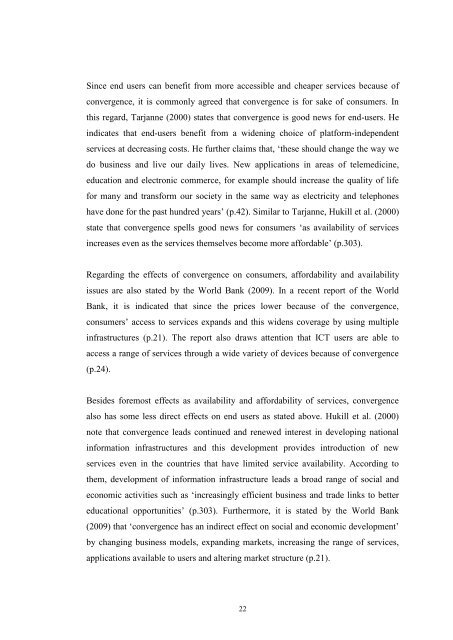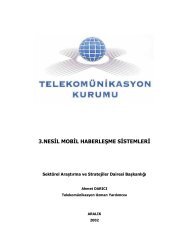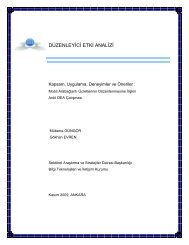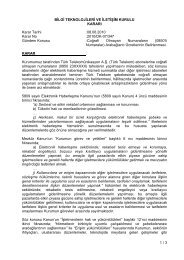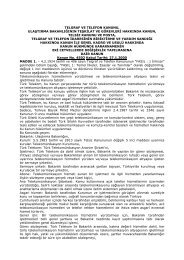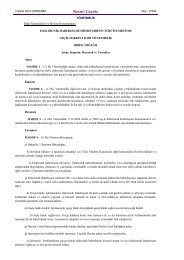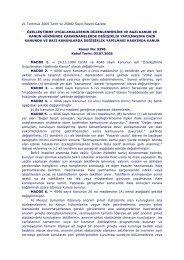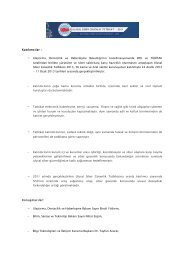city university london school of social sciences convergence of ...
city university london school of social sciences convergence of ...
city university london school of social sciences convergence of ...
Create successful ePaper yourself
Turn your PDF publications into a flip-book with our unique Google optimized e-Paper software.
Since end users can benefit from more accessible and cheaper services because <strong>of</strong><strong>convergence</strong>, it is commonly agreed that <strong>convergence</strong> is for sake <strong>of</strong> consumers. Inthis regard, Tarjanne (2000) states that <strong>convergence</strong> is good news for end-users. Heindicates that end-users benefit from a widening choice <strong>of</strong> platform-independentservices at decreasing costs. He further claims that, „these should change the way wedo business and live our daily lives. New applications in areas <strong>of</strong> telemedicine,education and electronic commerce, for example should increase the quality <strong>of</strong> lifefor many and transform our society in the same way as electri<strong>city</strong> and telephoneshave done for the past hundred years‟ (p.42). Similar to Tarjanne, Hukill et al. (2000)state that <strong>convergence</strong> spells good news for consumers „as availability <strong>of</strong> servicesincreases even as the services themselves become more affordable‟ (p.303).Regarding the effects <strong>of</strong> <strong>convergence</strong> on consumers, affordability and availabilityissues are also stated by the World Bank (2009). In a recent report <strong>of</strong> the WorldBank, it is indicated that since the prices lower because <strong>of</strong> the <strong>convergence</strong>,consumers‟ access to services expands and this widens coverage by using multipleinfrastructures (p.21). The report also draws attention that ICT users are able toaccess a range <strong>of</strong> services through a wide variety <strong>of</strong> devices because <strong>of</strong> <strong>convergence</strong>(p.24).Besides foremost effects as availability and affordability <strong>of</strong> services, <strong>convergence</strong>also has some less direct effects on end users as stated above. Hukill et al. (2000)note that <strong>convergence</strong> leads continued and renewed interest in developing nationalinformation infrastructures and this development provides introduction <strong>of</strong> newservices even in the countries that have limited service availability. According tothem, development <strong>of</strong> information infrastructure leads a broad range <strong>of</strong> <strong>social</strong> andeconomic activities such as „increasingly efficient business and trade links to bettereducational opportunities‟ (p.303). Furthermore, it is stated by the World Bank(2009) that „<strong>convergence</strong> has an indirect effect on <strong>social</strong> and economic development‟by changing business models, expanding markets, increasing the range <strong>of</strong> services,applications available to users and altering market structure (p.21).22


